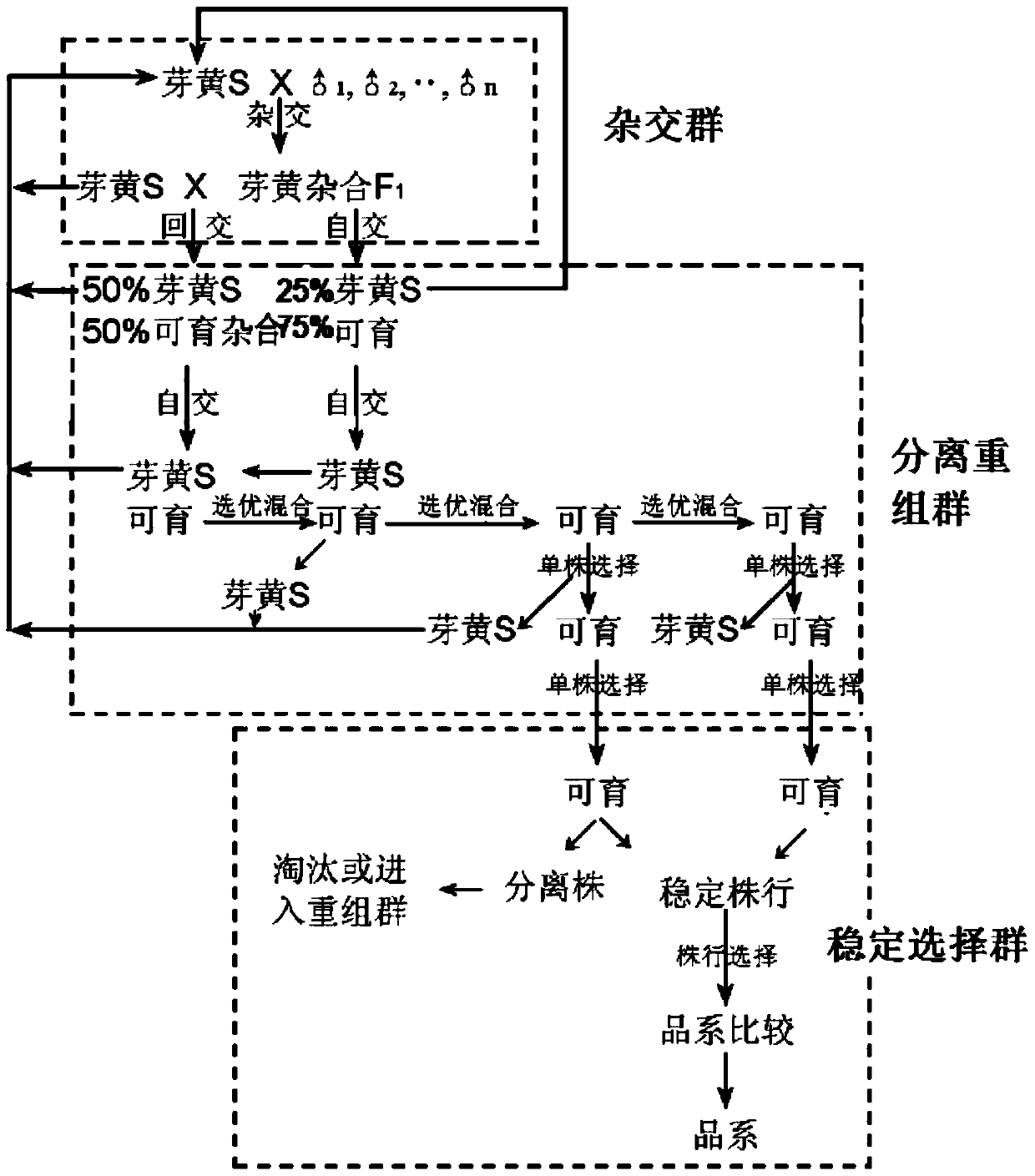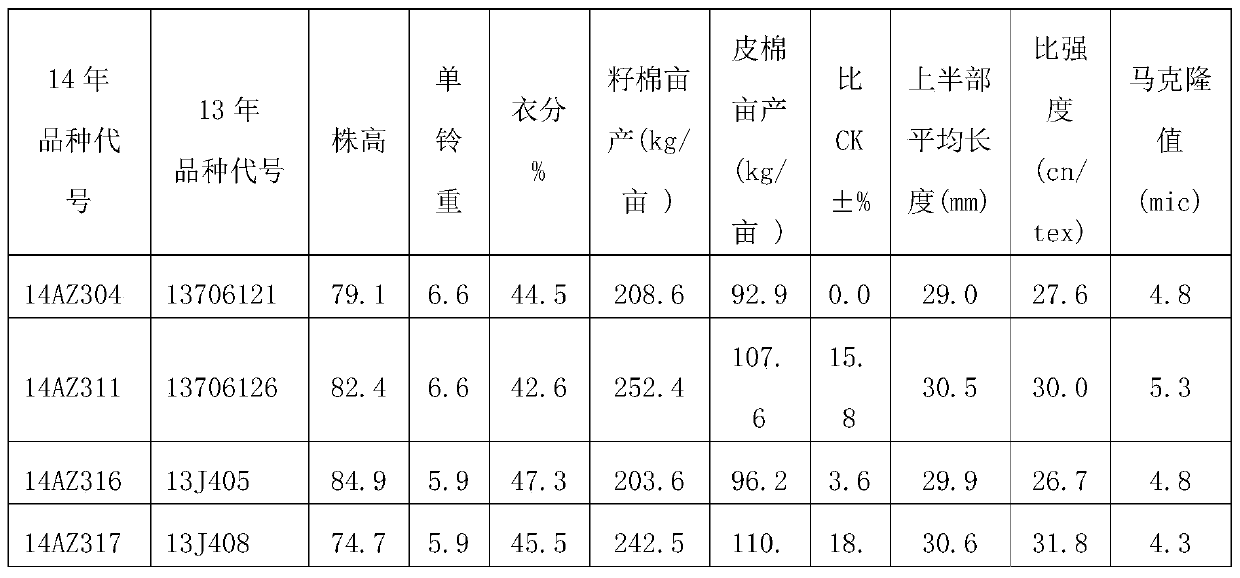A kind of recurrent breeding method of cotton varieties
A technology for reincarnation breeding and cotton variety, applied in the fields of botanical equipment and methods, applications, and plant genetic improvement, can solve the problems of high labor intensity, high cost, short breeding years, etc., to reduce labor intensity and improve work efficiency. , the effect of high labor intensity
- Summary
- Abstract
- Description
- Claims
- Application Information
AI Technical Summary
Problems solved by technology
Method used
Image
Examples
Embodiment Construction
[0017] The cotton variety recurrent selection method of the present invention utilizes the cotton bud yellow photosensitive male sterile line for recurrent selection.
[0018] The bud yellow photosensitive male sterile line in the middle and lower reaches of the Yangtze River in Wangjiang County, Anqing City, Anhui Province in the Changjiang Ecological Experimental Station of China Cotton Institute Cotton in the normal growing season shows that the flowering stamens have a certain ability to loose pollen before June 20, that is, they can naturally self-fertilize The rate of infertility is high in bolls, and replanting in the second year’s season still shows the characteristic of male sterility with yellow buds and light sensitivity; during the period from the end of June to the first ten days of September, the flowering stamens show no powder, that is, male sterility, and the pistils can accept external pollen for pollination Fertilized into bolls, used to produce hybrids; flow...
PUM
 Login to View More
Login to View More Abstract
Description
Claims
Application Information
 Login to View More
Login to View More - R&D
- Intellectual Property
- Life Sciences
- Materials
- Tech Scout
- Unparalleled Data Quality
- Higher Quality Content
- 60% Fewer Hallucinations
Browse by: Latest US Patents, China's latest patents, Technical Efficacy Thesaurus, Application Domain, Technology Topic, Popular Technical Reports.
© 2025 PatSnap. All rights reserved.Legal|Privacy policy|Modern Slavery Act Transparency Statement|Sitemap|About US| Contact US: help@patsnap.com



